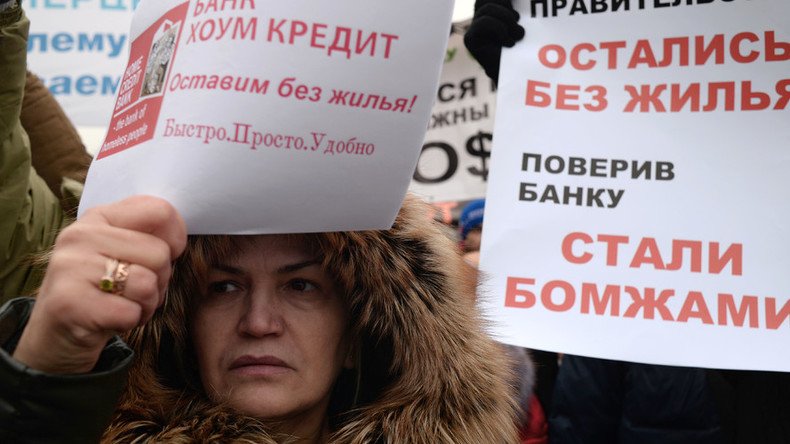Bill regulating debt collection services gets OK from Russian govt - report

The Russian cabinet has reportedly approved the bill that, if passed, would impose restrictions on debt collector agencies, including direct ban on psychological pressure or disclosure of debtors’ personal information to a third party.
Business online newspaper RBC daily reported on Tuesday that the bill regulating the work of collector agencies was approved by the government without any correction. Reporters quoted two independent cabinet sources, but named neither of them.
READ MORE: Russian debt collectors cut off children’s hospital phone over nurse’s personal loan
The bill in question was drafted in the Russian parliament in February, jointly by speakers of the two parliamentary chambers. The document directly bans debt collectors to use physical force or threats, deceit or damages to property. The collectors are also not allowed to disclose the information about debtors – either through personal contacts with relatives or co-workers or through various media, like the internet or outdoor advertising. The document also allows collectors only two phone calls and one personal meeting with one debtor per week. It is specified that neither phone calls nor meetings can take place at nighttime.
The bill also allows debtors to officially refuse to interact with certain collection agencies or choose a representative for such activities.
Currently the work of collector agencies in Russia is regulated by the Law on Consumer Credit. This act has some provisions aimed at protecting debtors, but its practical execution has proved these measures to be insufficient.
The conflicts between debtors and collectors became more frequent as economic growth in Russia slowed and many people have lost opportunity to repay their loans. According to the state consumer rights agency Rospotrebnadzor, the total amount of overdue debts sold by banks to collector agencies is currently over 400 billion rubles (US$5.7 billion) and is expected to remain on the same level till the end of 2016.
In late January this year, Russian mass media reported that a tax collector allegedly petrol bombed a home in the city of Ulyanovsk, injuring an elderly man and a two-year-old boy. This incident became the last straw and on January 28 upper house Speaker Valentina Matviyenko urged the parliament to impose a temporary ban on collectors’ activities until a special law is passed to regulate this sphere.
READ MORE: Toddler in Russia burnt by Molotov cocktail apparently thrown by debt collector
In mid-February, the legislature of the Crimean Republic addressed the federal parliament with a request to pass the new bill on collector agencies in the shortest time possible, complaining that the existing laws were so imperfect that they effectively turned debt collecting into a criminal business.












